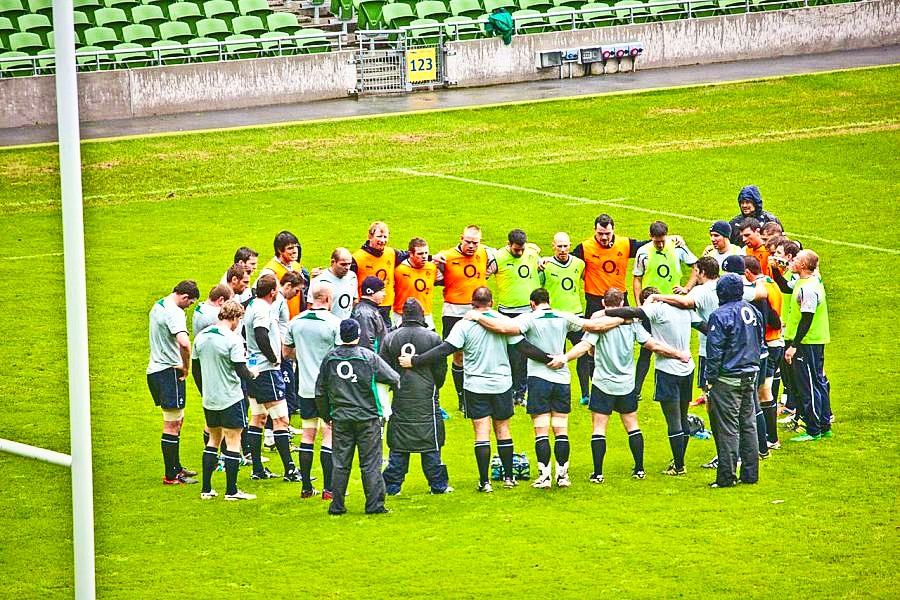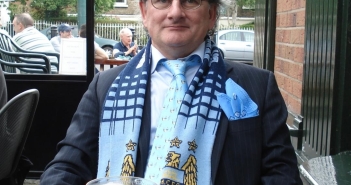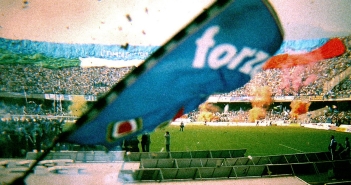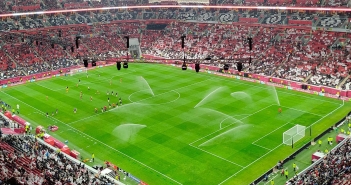I yearn for Six Nations matches at this time of year. Despite my worthier self, I cannot take my eyes off a psychological drama and physical spectacle offering respite from interminable winter.
The violence is terrible, but it seems life-affirming that these specimens can, for the most part, withstand the battering. At its best, it conveys life-in-action, a primal dance and irrepressible human spirit.
One man who never played in the Six Nations is the Australian of Zimbabwean-descent, David Pocock, and to my mind he has been the bravest player of this era. It is unsurprising that his political convictions are similarly resolute. Fittingly, he was once arrested after chaining himself to mining equipment in a protest against a new coal mine in New South Wales.
Thankfully he seems to have emerged relatively unscathed from his many bouts on the field, bowing out at last from international rugby at the end of the recent Word Cup, unfortunately on a losing note against Engalnd.
Make no mistake, there are injuries which occur as a matter of probability in rugby that make the endurance of the current rules almost unforgivable. Driving straight into the back of a player, with staggering force, who is grappling with his hands on the ground is surely unsustainable, but at least the high tackle is being clamped down on by referees. This makes the current game a more enjoyable spectacle as a player can offload more easily out of the tackle, and the quagmire of rucks and mauls become less frequent.
‘Drico’ v O’Connell
For this Irish rugby fan of over thirty years duration the recurring debate is whether Brian O’Driscoll or Paul O’Connell was the greater Irish player of the era. Both were giants of the sport that transcended the structures from which they emerged, subtly altering players that emerged in their wakes. Thus the sublime Garry Ringrose is the heir to O’Driscoll and the all-action James Ryan the pretender to O’Connell’s throne, an unenviable posture locking the Irish scrum.
The provincial origin of each of these totemic player must be taken into account. Munster from which O’Connell hails is the beating heart of Irish rugby where many of its origin myths lie. Of course much of this is late magic, compared to the rarefied surrounds of Trinity College in Dublin, which is said to have the oldest pitch still in use in the world. But Munster is where a distinctive mark was placed on the sport of rugby itself in the latter decades of the twentieth century.
Essentially Munster played above the collective athletic attributes of the team with an unprecedented unity of purpose that laid low the greatest international team of its time. Of course the All Blacks had been beaten before and since on tours, but this was generally where teams were composed of stellar internationals playing for clubs, or perhaps if the All Black team was at a low physical ebb on a long tour. In 1978 the Munster team in unison with the crowd performed a mythological feat no less: Alone it Stands indeed.
Archetypal Munster rugby players, such as the late Moss Keane, were certainly not small or necessarily unathletic, but are rarely the biggest or fastest in their positions. It was when they combine with one another, as a band of brothers, that they overhaul and outwit – with a capricious gale blowing behind them in the second half – any opponent who dares enter their Thomond Park redoubt.
This group togetherness – comparable to what the medieval Arabic writer Ibn Kaldun termed asabiyyah in describing the warlike Bedouin tribes of North Africa – allied with tactical awareness and sheer bravery yielded two European Cups in the early years of professionalism (2006 and 2008), at a time when French and English teams could not easily pluck talent from the outer regions of the Southern Hemisphere, as occurs today.
That is not to say that Munster was closed to foreign influence; the team embraced the new wave of professionalism, recruited wisely, and established a brand that had a halo effect on Irish rugby as a whole, before the limitations of a small population made it impossible to sustain the conveyor belt of talent required for success.
As a player Paul O’Connell possessed what is commonly referred to as Munster ‘dog’ in spades, but he allied this with often quite outrageous feats of skill in the air. He was not, however, for all his capacity to take a game by the scruff of the neck and play it his way – fast rucking and relentless pick and drives – the complete player. His handling in the loose at times let him down, and he never developed the dexterity commonly seen in Southern hemisphere players of his ilk.
This was perhaps the product of an upbringing where rugby was explicitly training rather than a form of self-expression, as where kids ‘play’ with a ball in a game such as ‘tag’ on a sun-baked field or beach. One could point the finger at the wet climate of the south-west of Ireland which required outdoor activities to be more structured.
Perhaps this background in hard graft and adversity accounts for what seems to have been a tendency on O’Connell’s part to see the ball as means to an end: putting points on the board. As a leader, he seemed untroubled to amaze a crowd in the process of scoring points, calculating that a try from a rolling maul counted for as much as the giddiest of wing play.
O’Driscoll, on the other hand, was a trickster, who played with a smile on his face, and burst on the global scene as a superstar when scoring a bravura hat trick of tries in Paris in 2000, before in 2001 seducing British and Irish Lions fans in Australia, who waltzed to his tune.
A brash, cosmopolitan boy from the capital city of an increasingly prosperous country and class, ‘Drico’ ended his career to great fanfare, winning a second Six Nations Championship medal in 2014. He was the swashbuckling hero who performed feats on a rugby pitch that amazed a crowd, but he was as physically brave as any Munster contemporary. His capacity to recover from serious injury, especially the cruel assault on him as captain of the Lions in 2005 against the fearsome All Blacks, was also nothing short of remarkable.
It is, however, as a team captain that one might prefer O’Connell. One senses that other, lesser, players reveled in O’Driscoll’s star turns on the pitch, but perhaps relied overly on his individual brilliance.
O’Connell on the other hand appeared to exercise the force of a demagogue over his companions. Under his guidance, players offered the same relentless hunger for confrontation, and group togetherness in the Munster tradition, as opposed to the elusive capacity for individual brilliance that O’Driscoll imparted.
Leinster Schools Rugby
I grew up in the province of Leinster and my formation as a rugby fan arrived in the school’s game where we viewed the likes of Dennis Hickey when he was a young buck. It is now one of the world’s great breeding grounds for new braves, as the remarkable recent consistency of Leinster in European competition demonstrates, with four European Cup wins to date: 2009, 2011, 2012 and 2018.
I have heard it said that the relatively flat lands, and slightly drier conditions, of the east of Ireland produce a different, swifter, physical specimen, meaning the archetype of the Leinster player is generally a purer athlete than the Munster equivalent – players such as Jordan Lamour and Andrew Porter conforming to this type, in contrast to grizzled Munster legends such as ‘the Claw’, Peter Clohessy or ‘Gaillimh’ Mick Galway.
Embed from Getty Images
‘the Claw’, Peter Clohessy or ‘Gaillimh’ Mick Galway in action for Ireland.
The all-round excellence of O’Driscoll remains the high water mark, but the number of players of great ability breaking through is quite astonishing to behold. I admit to a vain pride in a step cousin Caelan Doris – a wunderkind number 8 – who is now a regular part of the international squad.
If only I had a few of young Caelan’s genes my rugby career might have got beyond the muddy far pitches of Gonzaga College. Although admittedly a reluctance to allow my head to be left in close proximity to rapidly moving legs, and little appetite for the punch-ups that marred many encounters in the 1990s, made even a moderately successful career unlikely.
A Nation Once Again?
A polite argument broke out among a few friends recently on the subject of nationalism, and whether it is a destructive force in the world. That led me to consider what motivated the appreciation I have for a sport that is often quite dull as a spectacle, with constant repetitions of drills and risk aversion all too often evident. Indeed, to the uninitiated the game of rugby, with its puzzling array of rules, is not the most accessible.
Competition between national groups reminds me of the psychodrama of a contest between competing forces, which take on the simplistic roles of good and evil to the viewer. Thus, even if an opponent displays skill or impressive composure I cannot enjoy it, and positively shrink from the sight of his success. Meanwhile even if my own side are playing in a stolid fashion I can still appreciate the effect, and even look beyond any skullduggery, especially if it is part of a wider strategic plan, weakening the opponent before striking in an unexpected way.
Likewise, it seems to me, nationalism can be an ugly, zero-sum game of winning and losing, whether it is the aspiration for a united Ireland – albeit there are distinct practical and civic advantages – or having one language dominant over another under the law. Similarly, we are generally inclined to disregard whether nationalistic aspirations are achieved by fair means or foul, ignoring the cruelty of earlier conquests, just as the Americans laid claim to virgin territory, glorifying the first settlers and ignoring those who once populated the land in relative harmony.
There is, however, a more edifying side to nationalism, where we achieve a form of greatness not in terms of others, i.e. winning as the be-all-and-end-all, but simply in the way we exist, and play. Lest we forget, few states of the Old World appear to be content where different ethno-linguistic groups co-habit – even the prosperous Belgians of different languages only grudgingly co-exist.
It is in the songs we sing, in the food we prepare, and in the nature we adore and protect that the best expression of group solidarity is found, and in sport at times too. This is the nationalism of an O’Driscoll, where magic happens, but where the processes derived from tradition, which we might associate with an O’Connell figure, are upheld.
Maybe conflict is in the nature of humanity, and in that respect sport serves a purpose that George Orwell overlooked when he peremptorily described it as ‘an unfailing cause of ill-will.’ But perhaps it really just channels or acts as a conduit for ill-will, and is not the cause itself. Of course the contrary argument that discord is actually magnified by these latter-day gladiatorial contests might, paradoxically, also hold true. It seems as if the meaning of sport is as varied as any other field of human endeavour, and forms of it are always likely to excite us.
The Four Proud Provinces
In Irish sport the code of rugby is almost unique in generating genuine all-Ireland national fervour,crossing political and sectarian boundaries. Notably, ‘big’ Davy Tweed, a former Unionist councillor and alas a convicted paedophile, played on a number of occasions for the Irish team, and with great energy it should be said. It was Tweed who demanded an alternative to Amhrán na bhFiann, the anthem of the Irish State, which bequeathed us Phil Coulter’s ‘Ireland’s Call’, a rather primitive song. But for all its harmonic deficiencies it has nonetheless proved a popular, and unifying dirge that is belted out with great emotion by crowd and players alike.
It has snobbishly been said that rugby is a game for thugs played by gentlemen, while soccer is the reverse. Clearly there is a class basis to each of these sports across Britain and Ireland. The food calories alone that an elite rugby player requires every day must be quite an investment throughout early adulthood. But it is perhaps more accurate to say that rugby is an institutional sport, requiring the availability of pitches and training facilities all too often absent in working class districts, and more likely to be found in a rural setting. Yet the example of the Southern Hemisphere demonstrates that even working class kids can develop into professional players.
During the amateur era Ulster were the most successful of the Irish province, and fittingly the Ulstermen were the first to win a European Cup in 1999, using a group of players drawn overwhelmingly from the region. But the province has latterly struggled to compete with the number of new players available to Leinster every year, and the great spirit that Munster players still derive from playing in the red jersey.
Moreover, the recent displays of toxic masculinity in Ulster rugby shocked the entire country, and brought an existential crisis to the game. This is a stain that has not been fully removed, at least publicly, from the public – as was the case in New Zealand where less worrying incidents led to the development of a respect and responsibility programme for players.
Yet all but the most curmudgeonly of Irish rugby fans rejoice when Ulster performs on the European stage, unlike the more divisive Leinster-Munster rivalry, and the success of Ulster players in the Irish shirt provides a bewitching fellowship recalling the United Irishmen of Catholic, Protestant and Dissenter.
Like the Leinstermen of lore, Ulster’s greatest warriors tend to be fleet-footed athletes but with a Nordic edge of physical brutality epitomised by the incomparably tough Stephen Ferris. The new Ulster hero is the powerful Jacob Stockdale, who has made scoring tries at the highest level look easy.
The Western Province
One can only admire the durability of the men of Connacht, withstanding probably the wildest weather in the rugby world in their Galway citadel. Against the odds, they have created a spirit unique to themselves that culminated in victory against Leinster in the Celtic League in 2016. My father comes from Sligo on the Western seaboard, so I have a particular sympathy for their plight as underdogs in the Irish game.
As an immigrant for a time in London I did my own impersonation of one of the province’s greats, the rampaging number 8 Noel Mannion who, it should be said, was not the most fleet-footed.
Living in Bloomsbury in the heart of the capital, I went out for a stroll one night that took me to the back of the British Museum, a tranquil spot amidst the maelstrom of the capital. I proceeded down the road, lost in reverie. Luckily, however, just in time it dawned on me that a small crowd of youths, who didn’t seem like a welcoming committee, were about to surround me. There were no other pedestrians, or cars, in sight. Then, as I recall, one of them requested a cigarette.
I responded that that I could not provide him with one, which seemed to perturb him, so without pause I turned heels and began to walk back up the street. At that point another one enquired as to why I had taken that course of action. I replied that I was being surrounded. Then I took off at a gallop as fast as my ruddy thighs could carry me.
It was then that I summoned the spirit of Noel Mannion in 1989 at the Cardiff Arms Park when, after he charged down a kick he found it in his possession with a clear run to the try line, almost the length of the pitch away. Like Noel before me, I pinned back my ears, and hoped the chasing pack wouldn’t catch me. But by this stage one of the youths was abreast. He tried to trip me up, but I strode on with a power and pace hitherto unknown.
At last I heard the youth scream in despair before I reached the well-lit sanctuary of Gower Street, and in my mind I heard the away supporters in the Cardiff Arms Park roar their approval.
Although he hails from a land far down under, Bundee Aki now carries the flame of Connaught resistance in the Irish team and one must admire a guy who brings his family to an ethereal place such as the City of the Tribes, and gateway to the Never Never Land of Connemara. Romantically, I expect the next great hero of Irish rugby, in the mould of an O’Driscoll, O’Connell or Ferris, but of a distinctly Far Western character, to emerge as the heir to Bundee.
Twickenham Awaits
So let us gather Irish people, new and old, to enjoy the spectacle this weekend. I for one am avoiding any sense of guilt at enjoying this crucible of unabashed manliness. All sports should of course be open to both genders, but the failure of educational institutions to provide adequately for women over the course of our history should not inhibit the simple pleasures we derive. After all it’s not a zero sum game between the respective sports of the two sexes.
Win or lose, let us hope the Irish team carries itself with pride on the pitch. If they do lose, and we cannot expect the team to win every game, away from home, against a rugby union with a far greater playing pool than our own, let them hold their heads high in the knowledge they played with pride in the traditions laid down by those who once played their parts, and with the individual brilliance which each has been endowed.
For the men of Leinster, Munster, Ulster and Connaught must play with a unity of purpose and great skill to overcome the English team, summoning the spirits O’Driscoll, O’Connell, Ferris and even Noel Mannion.




